Display videos
Yes, I'd like to see videos dispalyed.
Bayer 04 secured the services of the striker in the summer of 1995. The competition at Leverkusen was massive with Felle, as his Werkself teammates call him, playing 33 Bundesliga games but only making five starts. In his debut for the Black and Reds on matchday one in the 1995/96 season, he scored on 87 minutes, six minutes after coming on, in a 2-1 win at Rostock. He played a total of 77 Bundesliga games for our team and scored 14 goals.
On Sunday, 9 March 1997, Felle enters the history books of Bayer 04. In the 5-2 home win against Bayern Munich, he played in place of the injured forwards Ulf Kirsten and Erik Meijer as a lone striker – and he put the ball in the back of the net three times. He received a standing ovation at the Ulrich Haberland Stadium when he was substituted on 90 minutes. Two weeks later, Felle suffered a torn cruciate injury away to Freiburg and that brought his career to a halt. He did play for several years in the Bundesliga for Borussia Mönchengladbach, VfL Wolfsburg and Energie Cottbus but Markus again and again struggled with injuries. In January 2003, KFC Uerdingen, with their coach Claus-Dieter Wollitz, brought him into the Regional League West. Markus Feldhoff was the top scorer in that league in 2003/04. He followed the coach Wollitz to VfL Osnabrück in the Regional League North and scored 24 goals in 55 games for the Lower Saxony club.
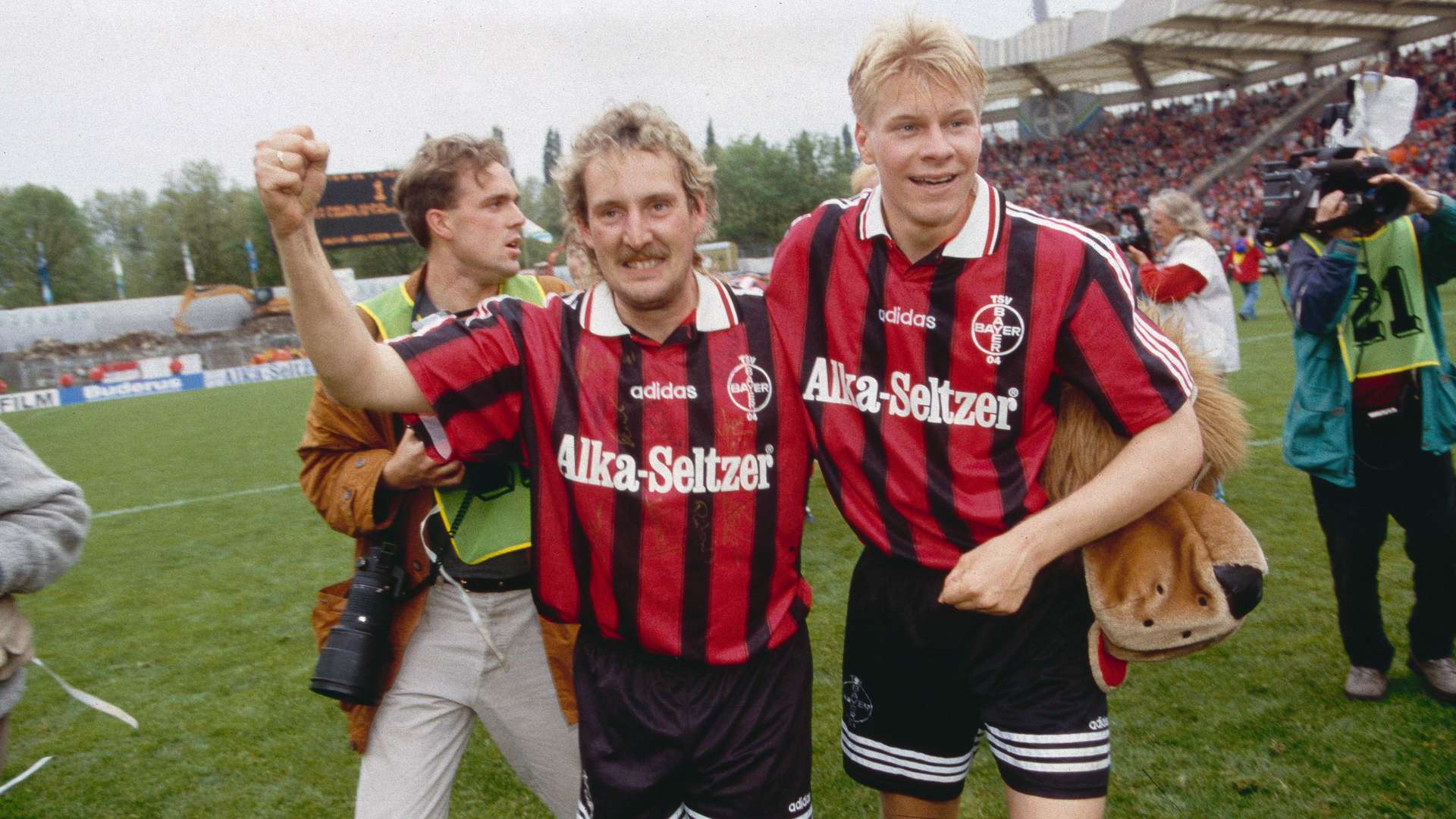

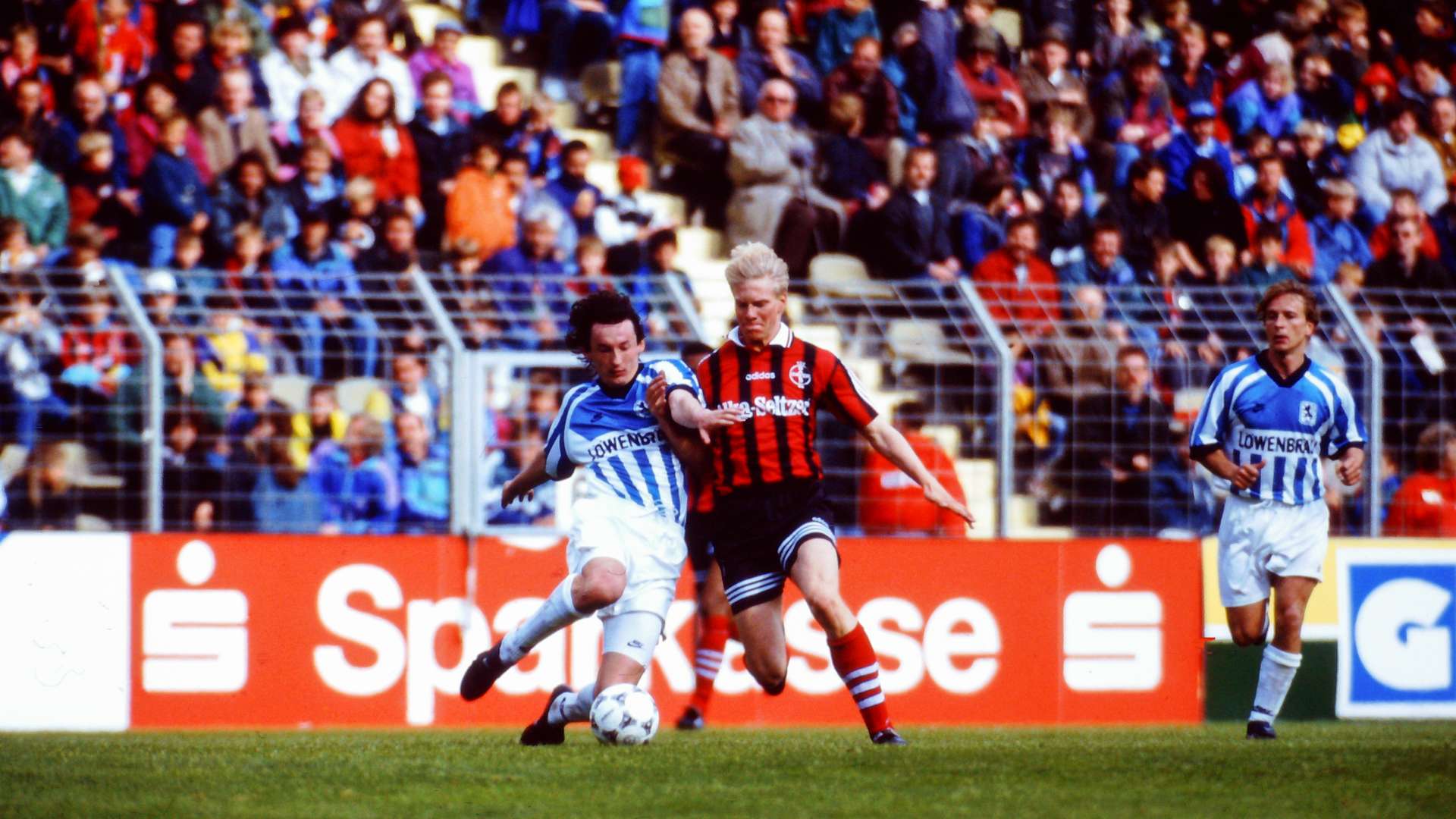
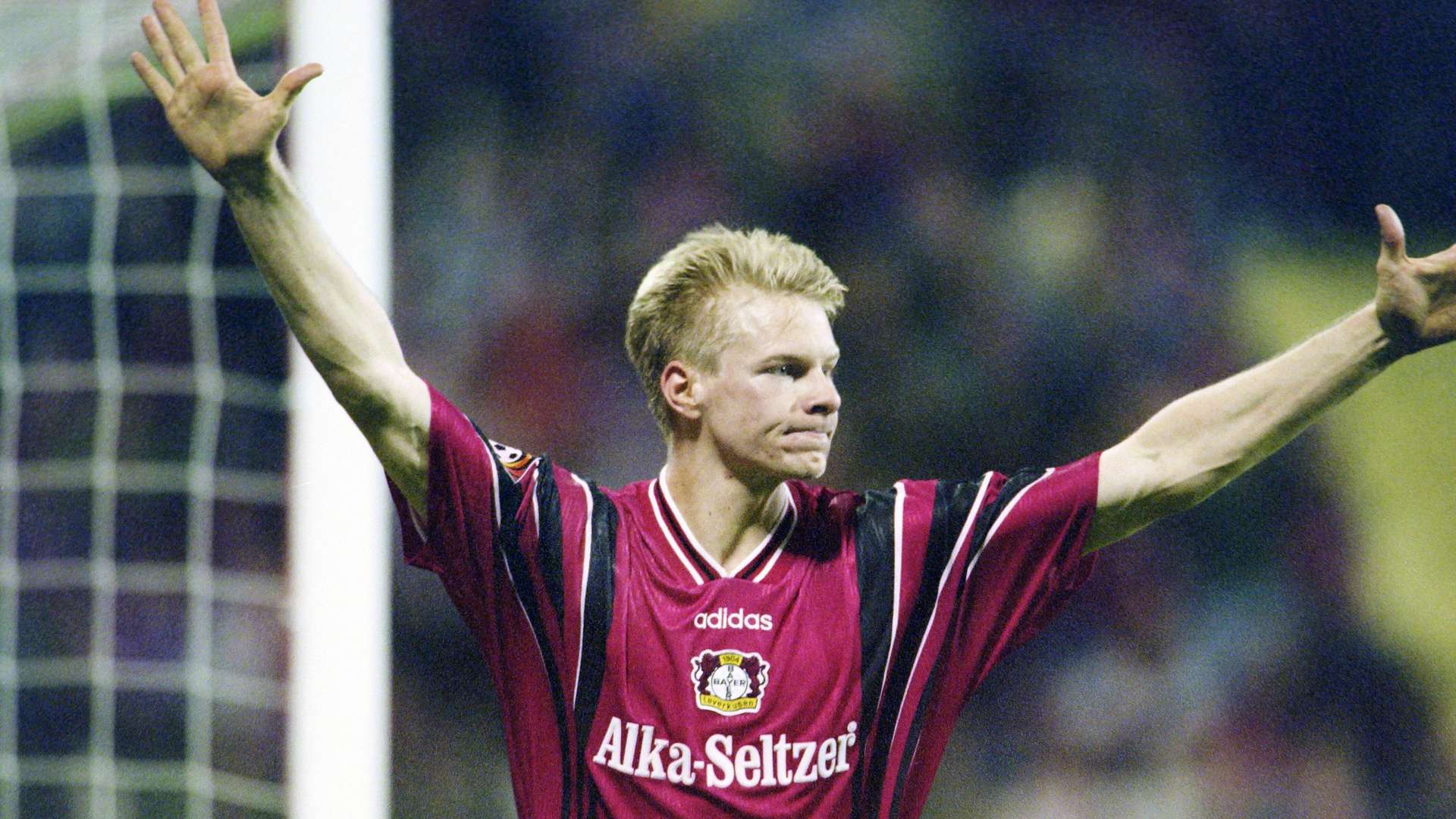
While he was still playing, Markus Feldhoff took up his first coaching position in December 2006 at TV Jahn Hiesfeld. He stopped playing two years later after another knee injury and focused instead on coaching, which he spent mostly as assistant coach at clubs including VfL Osnabrück, Energie Cottbus, Hertha Berlin and Werder Bremen. He is currently assistant coach at VfL Bochum.
Dear Felle, many happy returns on being 50! I wish you all the best and above all good health.
Related News
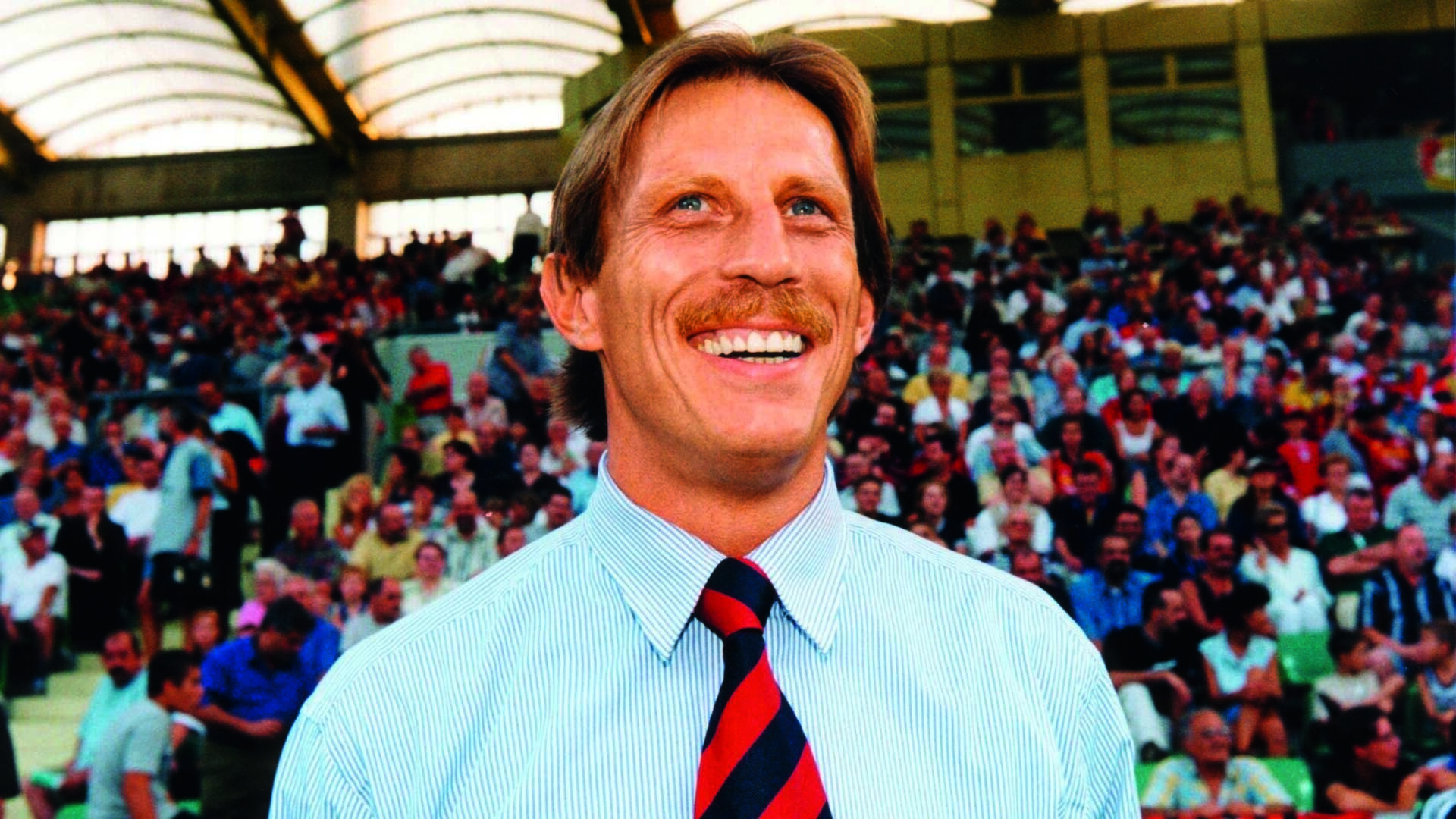
Legend: Christoph Daum - The man who taught us to want
Christoph Daum was born on 24 October 1953 in Zwickau. As a child, he moved to West Germany with his mother and grew up in Duisburg. He developed a great enthusiasm for football at an early age, even though it soon became clear that his future lay less on the pitch than on the sidelines. Even at a young age, his passion for analysing, explaining and improving things became apparent.
Show more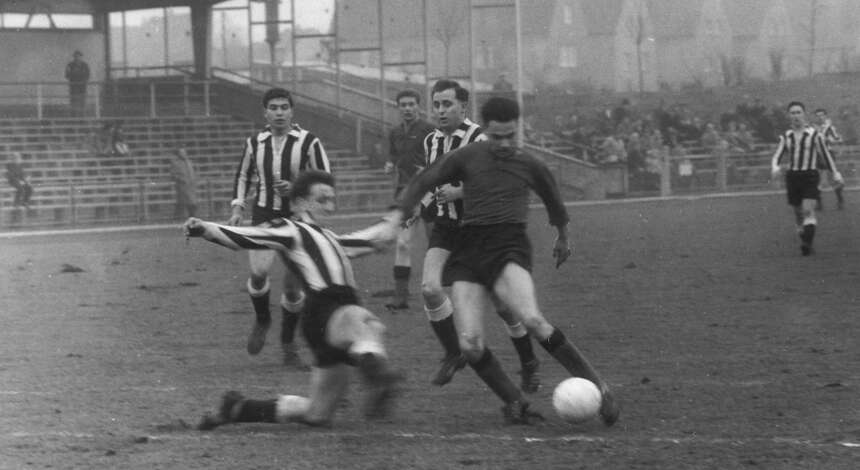
From the archives: 65 years ago - Another victory at last
When the Bayer 04 players celebrated Christmas in 1960, they spent the winter in second place in the Oberliga West 2 on 20 points - but already five points behind leaders Schwarz-Weiß Essen. However, coach Erich Garske's team are struggling to get back on track in the new year. A goalless draw against Bonner FV at home at the Ulrich Haberland Stadium was followed by a 2-1 away defeat in Erkenschwick. The following home game also yielded just one point. As a result, the team's promotion ambitions dwindled to a minimum, as the gap to the coveted spot has now grown to a challenging ten points.
Show more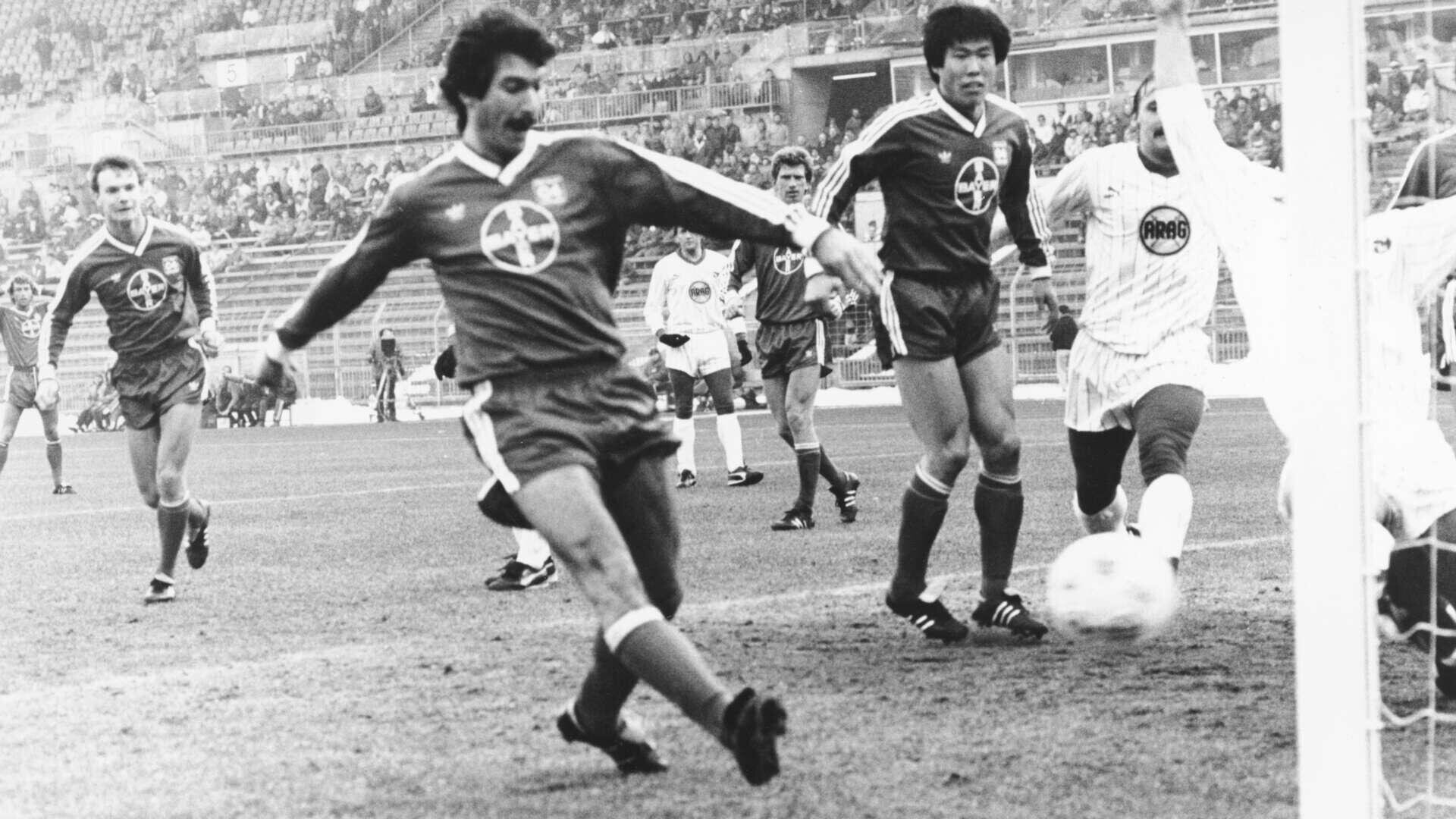
Goals of the month: From Waas to Tapsoba
In this video you can see impressive and important goals in Bayer 04 history from the month of February. It's not always about the beauty of the goals, but also a reminder of special games and players.
Show more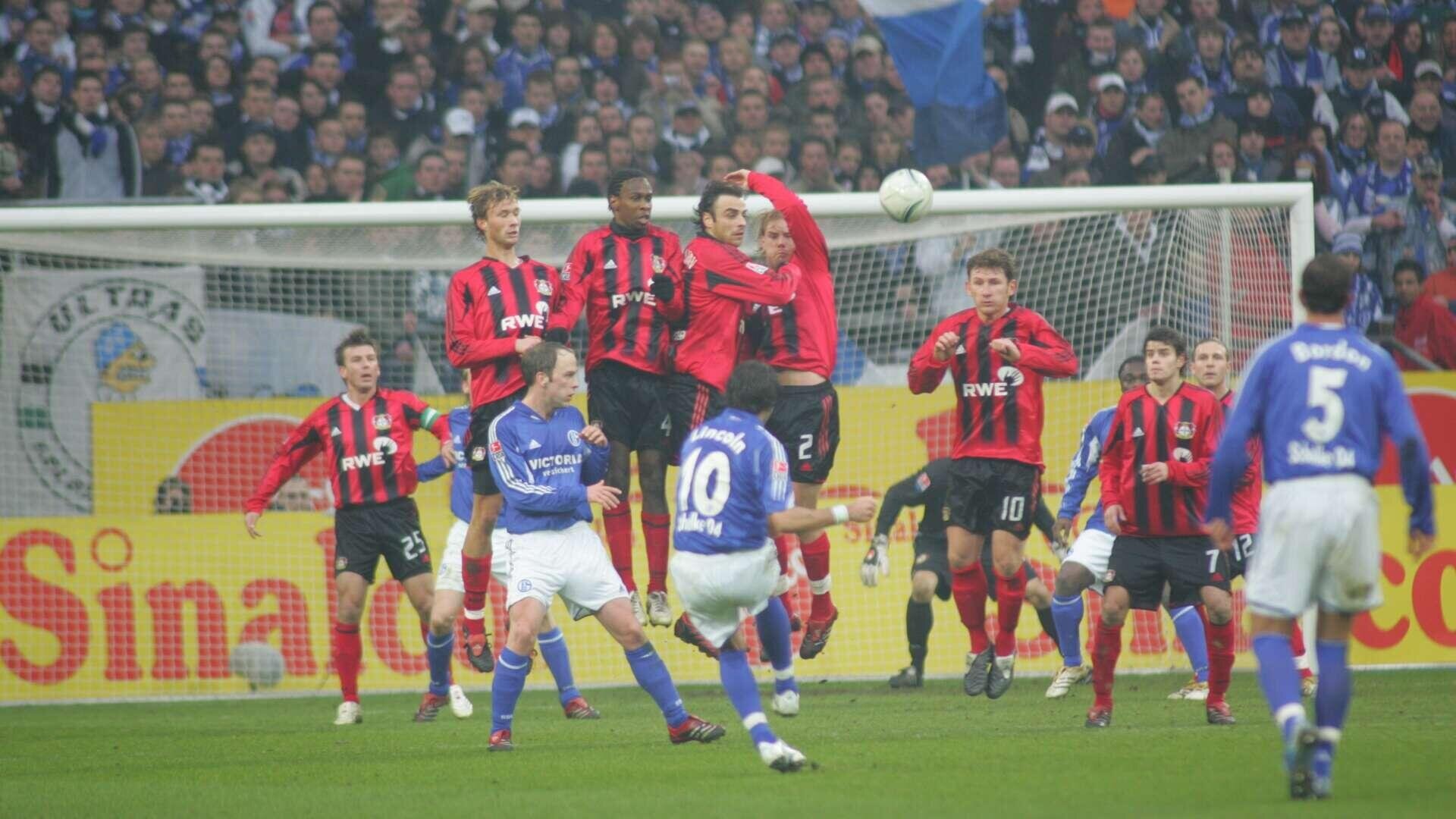
Match of the month: 20 years ago - A game of goals galore
It is 11 February 2006 and Schalke 04 and the Werkself kick off at 3.30 p.m. in a match that ends up being historic - at least from a Bayer 04 perspective.
Show more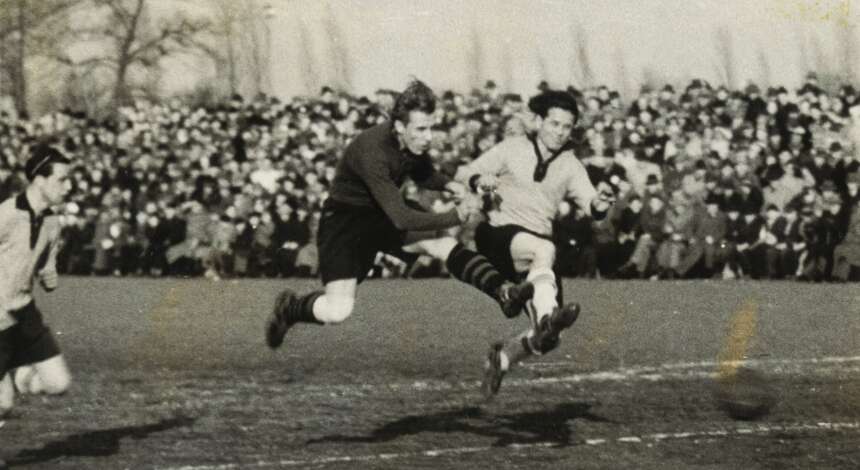
History: 75 years ago - The 1950/51 season (February)
As league leaders, the Werkself welcomed the relegation-threatened team from Rhenania Würselen. On 4 February 1951, 5,000 spectators line the touchlines despite the Sunday carnival parades. And they see a home team that is superior on the pitch. Without Theo Kirchberg, who was ill, and Emil Becks, who was suspended, the hosts attacked the opposing goal from the start. Battling against a strong wind in the first half, Bayer 04 created chance after chance, but were repeatedly thwarted by the Würselen goalkeeper. With the score at 0-0 at half-time, Karl Heinz Spikofski tried his luck on 55 minutes and hammered the ball into the opposition net from 20 metres out. Rhenania can no longer counterattack. The siege of the Würselen penalty area continued right to the end, but the game ended in a narrow 1-0 win.
Show more